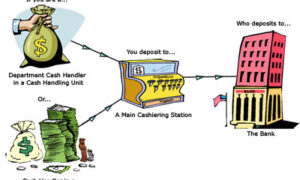Introduction:
Sewage extraction is a crucial service that involves the removal and treatment of wastewater and sewage from residential, commercial, and industrial areas. The importance of this process lies in maintaining hygiene, preventing contamination, and ensuring a safe environment.
What is Sewage Extraction?
Sewage extraction refers to the process of removing contaminated water and waste materials from buildings or environments that have been exposed to sewage backups, flooding, or other sewage-related problems. It involves the use of specialized equipment to pump out the waste, followed by cleaning, disinfecting, and sanitizing the affected area.
Methods of Sewage Extraction:
- Mechanical Pumping – Specialized pumps are used to extract sewage from basements, crawlspaces, or other areas that have been contaminated.
- Wet-Vacuum Systems – Wet vacuums are employed to remove smaller amounts of sewage and water from floors or carpets.
- High-Pressure Water Jetting – This method involves using high-pressure jets to clean pipes, remove clogs, and extract sewage effectively.
- Excavation – In extreme cases where sewage lines have burst, excavation might be necessary to access the problem area for repair and extraction.
The Importance of Professional Sewage Extraction Services:
- Preventing Health Hazards: Sewage contains harmful bacteria, viruses, and chemicals that pose a significant risk to health. Professionals use industry-grade equipment and protective gear to ensure safe extraction.
- Mitigating Water Damage: Swift action in sewage extraction can prevent long-term water damage to properties, helping to restore homes or businesses to safe conditions.
- Avoiding Contamination: Sewage can contaminate groundwater and the surrounding environment, leading to pollution. Proper extraction and disposal are essential to prevent this.
Safety Precautions During Sewage Extraction:
- Personal Protective Equipment (PPE): Workers must wear PPE, including gloves, masks, boots, and goggles, to prevent exposure to contaminants.
- Proper Ventilation: Ensuring adequate airflow during extraction helps prevent the buildup of hazardous gases such as methane.
- Thorough Disinfection: After sewage is removed, all affected areas must be cleaned and disinfected to eliminate pathogens.
Conclusion:
Sewage extraction is a vital service to ensure public health and safety in the event of sewage backups or contamination. Hiring professional services ensures the job is done efficiently and safely, preventing further damage and protecting both the environment and the people around it.
1. What is sewage extraction, and when is it necessary?
Answer: Sewage extraction is the process of removing wastewater, contaminated water, and solid waste from buildings or areas affected by sewage backups, flooding, or pipe bursts. It is necessary whenever there is sewage contamination in residential or commercial spaces, posing health risks and environmental hazards.
2. Can I perform sewage extraction myself, or should I hire professionals?
Answer: While small water cleanups can sometimes be handled by homeowners, sewage extraction should be performed by professionals due to the health risks involved. Sewage contains harmful bacteria, viruses, and chemicals that require specialized equipment and expertise for safe removal, disinfection, and restoration.
3. How long does the sewage extraction process take?
Answer: The duration of sewage extraction depends on the severity of the contamination and the affected area’s size. Simple extractions may take a few hours, while more extensive damage involving excavation and thorough sanitation could take a few days.
4. What are the health risks associated with sewage exposure?
Answer: Exposure to sewage can cause a variety of health issues, including gastrointestinal infections, skin rashes, respiratory problems, and more serious diseases caused by harmful bacteria, viruses, and parasites found in contaminated water. It is essential to avoid direct contact and call professionals for extraction and cleanup.
5. What steps should I take after a sewage backup occurs?
Answer: If a sewage backup occurs, avoid contact with the contaminated area, turn off water and electrical supplies if safe, and contact a professional sewage extraction service immediately. Do not attempt to clean the area yourself, as improper handling can spread contaminants and worsen the damage.
Read More From Techbullion And Businesnewswire.com



































